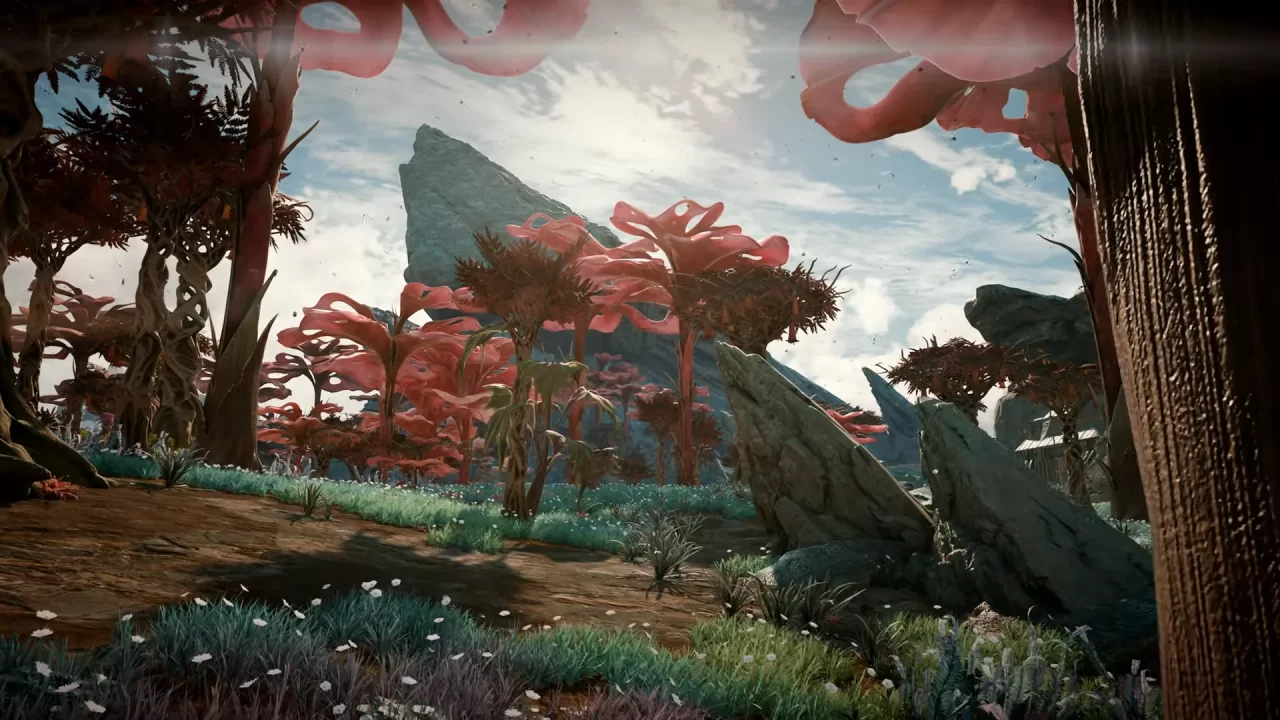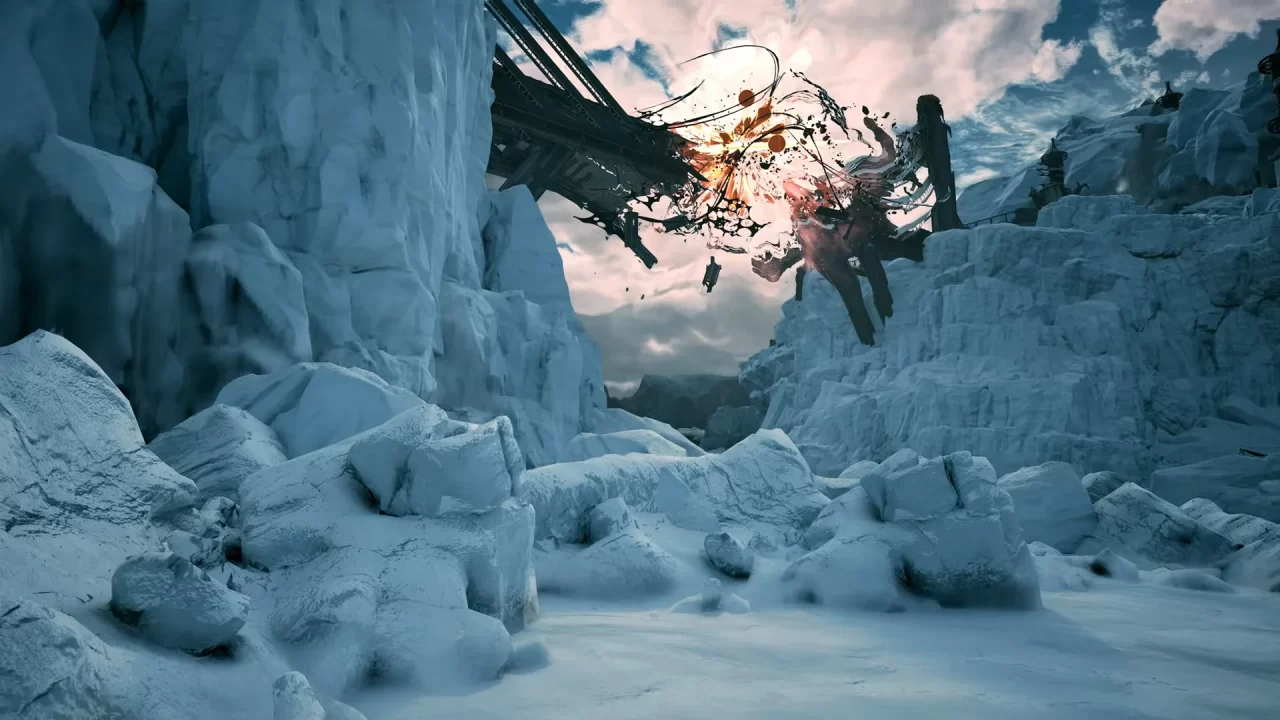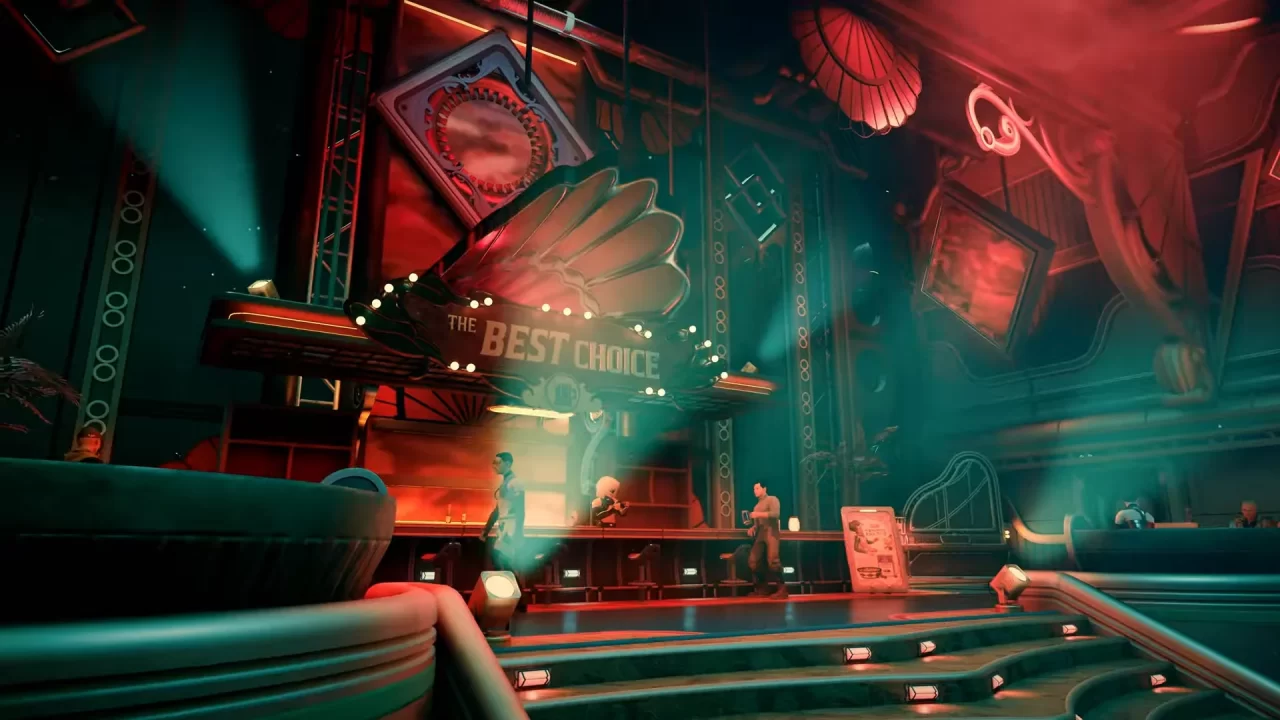I played The Outer Worlds 2 wanting to be surprised. I wanted the sequel to take the rough promise of the first game and turn it into something deeper, not bigger for the sake of being bigger. I followed developer interviews about the team leaning into classic RPG trade-offs and focusing on a denser opening world, and I understood the logic behind removing the ability to respec to make choices matter. After dozens of hours and too many half-baked quests, I can say those intentions are visible. I can also say they do not justify the way the game often collapses under its own ambitions.
From my first touchdown on the enlarged opening planet, I felt like I was being asked to do the heavy lifting for the game. The region is cluttered with errands disguised as quests. I cleared more than I should have, and by the time I finally left that world, I was exhausted rather than hungry to see more. That feeling stuck with me, as the promise of a varied galaxy turned out to be a slog through the same kinds of objectives. Twice the content, yes, but it too often comes across as twice the padding and not twice the imagination.
The game did have moments where it still grabbed me. The art direction and certain environmental set pieces are beautiful. Later planets that lean darker and more oppressive gave me the best moments in the playthrough; they felt thematically coherent and actually earned my attention. And companions mostly still work: banter in combat, consistent character beats, the one companion arc I genuinely enjoyed.
Unfortunately, those moments are islands in a sea of uneven design. Too many NPCs feel like set dressing. I found myself talking to townsfolk who had nothing interesting to say, who were clearly waiting for a quest marker to justify their existence. Characters appear when the plot needs them and vanish when it does not, with zero sense of introduction or stakes. I felt like I was being handed pieces of a story rather than invited to live inside one.
Quest design is the sequel’s biggest failure. Obsidian’s other titles had a knack for making even small quests reveal something meaningful about the world. Here, most side missions are busywork: fetch, return, repeat. I cannot overstate what a disappointment that was. In an RPG, the reward structure teaches the player what matters, and in this case the signals are broken.
The Outer Worlds 2 caps you at level 30, which, in theory, is a good screen against becoming a one-person army of every skill. I get the reasoning. I even like the idea of permanence in choices. But I reached level 30 well before I finished many companion arcs. Once I hit the cap, the motivation to finish content evaporated. Why engage in combat if the experience no longer changes my build? Why grind repetitive tasks for rewards that feel cosmetic? I found myself skipping fights because the game had simply stopped rewarding me.
The point isn’t min-maxing, but preserving the loop of risk and reward. When the game removes the carrot, the loop becomes a treadmill. The skill design compounds the problem. Speech lets you bypass entire boss fights and defang tension. Lockpicking mostly gets you small amounts of bits (currency) and a sliver of experience. Both cost skill points, but they do not carry the same weight in play, which makes choices feel arbitrary or meta-driven rather than role-play driven. The inability to respec means it’s impossible to design an important locked door that requires lockpicking, because what if the player doesn’t have it? The philosophy might be noble, but the balance is sloppy.
And on that note, the writing is also sloppy in a way that feels shocking and uncharacteristic. I expected uneven satire, but I did not expect NPCs to be dropped into scenes with no introduction or explanation. More than once, I encountered someone who seemed critical to the plot and had no establishment or motive; they essentially showed up because a quest needed a face. That felt like being handed a script that had not been fully staged. A few lines of genuine satire still landed, though the humor is too patchy. While the commentary on society is interesting at times, it too often reads like an outline rather than a targeted critique.
The antagonists are particularly weak; they exist to create friction rather than to be compelling figures in their own right, and they barely succeed even at that. I want villains who make me care, who push the narrative into deeper territory. Instead, I shrugged. It is a strange failing, because the game can create striking environments, yet it fails to craft believable characters who justify a player’s journey from planet to planet.
The Outer Worlds 2 also feels like it’s held together by duct tape. I hit a ton of annoying bugs: dialogue that failed to trigger, AI that idled in combat, odd UI behavior. One memorable example was when an elevator interaction told me I lacked authorization to enter, and then I rode the elevator up anyway. By the end of the game, my trust was completely eroded to the point that I expected every quest to have bugs.
This should be the part where I mention the soundtrack, except I couldn’t recall a single theme if I tried. The background music is so subdued and forgettable that it might as well not exist. The only note I wrote down was that NPCs occasionally bugged out and stopped talking altogether. Performances often sound like they’re being read straight off a script, though it’s hard to tell whether that comes from the acting or from the story giving them so little to work with.
There are design choices I appreciate even as they frustrate me. I liked the Spectrum Dance Saber, a rhythm-based melee weapon, more than I should have. Stealing adds a layer of emergent fun in certain pockets. Leveling feels rewarding when the systems actually work. The added verticality sometimes brings fresh possibilities. Those aspects kept me intrigued, but the positive flashes highlight the rest of the game’s inconsistencies.
Economy and reputation systems are undercooked. Bits feel useless because there are too few meaningful things to spend them on, and your standing with the factions never leads to interesting consequences. These are systems that, in a stronger game, would encourage experimentation. Here, they sit like empty scaffolding.
What bothered me most was how rarely The Outer Worlds 2 ever answered the simple question of why. Why am I going to this planet? Why does this person matter? Why should I care about these antagonists? Story beats exist largely to create new tasks rather than to grow stakes. The stakes do get higher eventually, but it feels completely forced and inorganic. This is a creative philosophy that favors structure and size over narrative purpose.
I still believe in Obsidian. I want this team to succeed. I have watched them turn messy starts into classics before. The constellation of a great RPG is visible: the atmosphere, the occasional inspired companion quest, the delight of the right weapon in the right encounter. But here the stars never align.
Play this if you love the setting and are prepared to sift through repetition for what looks like a diamond. But I’ll warn you now: when you finally dig it up, you’ll realize it’s just a rock. That’s the feeling this game leaves you with. The Outer Worlds 2 is not Obsidian at their best; it might be the worst Obsidian game I’ve ever played. For now, it is a sprawling failure of focus and pacing, a game that is often interesting by accident rather than by design.





